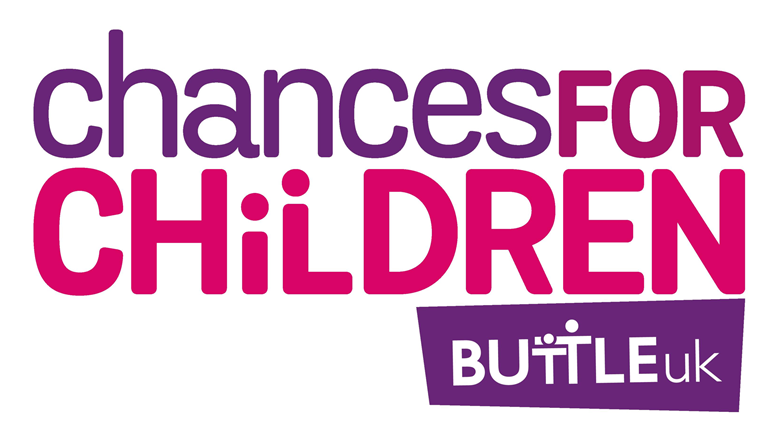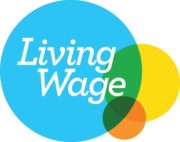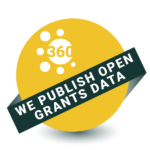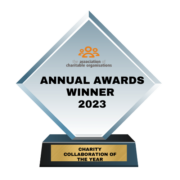Investing for the Future: What we can learn from involving young people in big decisions at Buttle UK
Our Impact & Evaluation Manager, Jessie Adams, reflects on what has been our biggest co-production project to date, what this meant for Buttle UK's bigger picture and the future of our investments of our endowment.
Framing the project
At Buttle UK, we are on a journey to embed co-production into the very centre of our work. It’s important to us that co-production feeds into all of our activities, big and small. That requires us to sit back and think about the much bigger picture of what our work looks like. While we may be a grant-making charity, we also do much more. This includes working closely with organisations in our sector, commissioning pieces of research, undertaking all sorts of fundraising activities, and managing the endowment that contributes to our grant-making. This project was all about the latter.
Our endowment is a historical part of our work. It began with the incredible achievement of our founder, Frank Buttle, in raising almost £1 million seventy years ago. To this day, we continue to use this endowment to pay for our running costs. It means that all our fundraised income can be used directly for our grantees. To sustain and grow the endowment, we invest it in the global markets.
Over the years that our endowment has existed, we have had many interesting conversations at Buttle UK about our responsibility to invest carefully, sustainably, and mindfully. It didn’t feel right to invest in industries that contribute to the challenges that some families and households living in financial hardship face, such as gambling or alcohol – so we stopped. Next, we wanted to turn the conversation on to the concept of future sustainability. We are a charity supporting children and young people to thrive, so our present is all about their future.
With this in mind, we knew that we needed to open up a discourse about ecological and sustainable investment. More importantly, we wanted those that are impacted by our decision-making to be the ones who lead that conversation. Thus, the Investing for the Future project was born.
What did our co-producers do?
Ten amazing young people set out on the journey and took part in their own ways, with seven seeing it through to the end. All of them had been recipients of a Buttle UK grant in the past and they represented Chances for Children and Boarding grantees. Some of them had had key roles in our Surviving Estrangement project (our first foray into co-production in 2022) and some had been involved in the recruitment process for new members of our staff team before. However, this was a completely new concept for them, and for us. Our Co-Production manager had to think very carefully about how to bring the concepts of investment portfolios, endowments and sustainability to life – and more importantly, empower our young co-producers to lead the conversation.
Over the course of almost a year, the team met regularly online to kick off the project and discuss what they needed to understand to build their argument. They also met in person in London several times, where they got to meet Buttle UK staff and take part in sessions with BlackRock and Rainforest Foundation UK. They were tasked with coming up with an argument for why we should, or shouldn’t, continue to invest in companies which contribute to poor ecological sustainability, like the fossil fuel industry.
Ultimately, the co-producers not only presented their knowledge and understanding to the entire staff team, they also put their argument to the entire Board of Trustees. The young people shared that this is not as simple a decision as it may seem, there is considerable nuance in the argument for disinvestment and engaged stewardship. They did feel that there was a need for trustees to plan for moving away from investment in fossil fuels. The trustees will now work up this plan for board consideration and this will kick off with a review of our fund managers at the end of 2024.
Making it count
The team at Buttle UK learnt so much from this project, thanks to our co-producers. It was so important to capture the journey that was behind all this learning and use it to inform our future projects. We spoke with every one of the young people after the project was completed in an informal evaluation. The purpose of this was to make sure we had captured their feelings and key take-aways from taking part, to make it all count.
When we asked the group why they got involved, they had lots of different motivations. Many had a curiosity about the purpose of the project and wanted to get behind its aims. They were happy that the conversation was framed around the future for young people like themselves. Some referenced a deep interest in the concepts of sustainability and taking action for the environment.
“It was such an interesting idea, getting to think about how we invest the money, what impact that has on the world, on our climate, economy and such.”
“I think the project was around something very relevant, and something that for people our age, is going to affect us the most. So, I felt it would be good for me as a young person to get involved.”
Through our co-production work, we always hope to give back to those that take part. This isn’t just about remunerating members for their time; it’s about owning and sharing opportunities that can give back. A great example was the co-producers’ growing self-assurance in business spaces and the skills they took away, such as critical thinking, engaging in debate and decision-making. It was very clear that, intimidating though some of the high-level decisions and situations this project presented were, the young people had come away with a highly positive perspective on their role and the expertise they had gained.
Many of the young people touched on their growth in confidence and their capacity to take on new challenges. They referenced feelings of nervousness and even, at times, feeling out of their depth, but framed this positively against the skills they took away from the experience.
“We met so many people through the rainforest charity and BlackRock and Buttle itself. Where we went from the very first introductory meeting, in terms of learning, it just grew massively.”
“One of the best bits was hearing from different perspectives…I really got a lot broader knowledge on climate issues, and debates about those too, and how it all relates to the economy. It was interesting how it was explained to us.”
“The actual speaking [to the board], I was there in person…I was feeling a bit nervous, but I did it anyway. And I think it’s gonna help me next time [because] I’ve already done it and had good feedback from it. I think that was a real positive.”
What will we take with us on the journey?
It is absolutely critical that those who take part in co-production activities feel that their participation is meaningful. Otherwise, there isn’t much point in doing it – and we would never want our co-producers to feel that any of our co-production work is performative. That’s not to say that there wasn’t scepticism. It was great to hear how the project itself changed the perspectives of those that undertook it.
“Initially I was sceptical…like, don’t tell me how we’re gonna go to the trustees and how they’re gonna change anything! Like why would trustees just listen to a bunch of 16- to 20-year-olds. I had kind of a sceptical start. But now I think completely differently. We did have a say, and we do have an impact.”
“We weren’t pushed in any direction at all. We would go off into separate Zoom rooms, and when we met in person we’d go into separate meeting rooms, and [Co-Production Manager] would let us really think it through. She’d come and check but honestly, we were leading it.”
This is compelling evidence that co-production as a tool for change at Buttle has significant power when used meaningfully. Many attributed this to their feeling that they were being listened to, and a sense that there was not a hierarchy between themselves and staff members they interacted with. Therefore, this is the proof we need to demonstrate why we should – and must – get co-producers right into the heart of our organisation, all the way up to the decision-makers at the top. Everyone stands to gain from this model of working.
Jessie Adams – Impact and Evaluation Manager. Reach out to me at jessiea@buttleuk.org for more information about evaluation as a tool for change.
This project was undertaken by my colleague Charlotte Robey-Turner, Co-Production and Youth Engagement Manager, who leads everything we’re doing with co-production. Reach out to her at charlottert@buttleuk.org.





